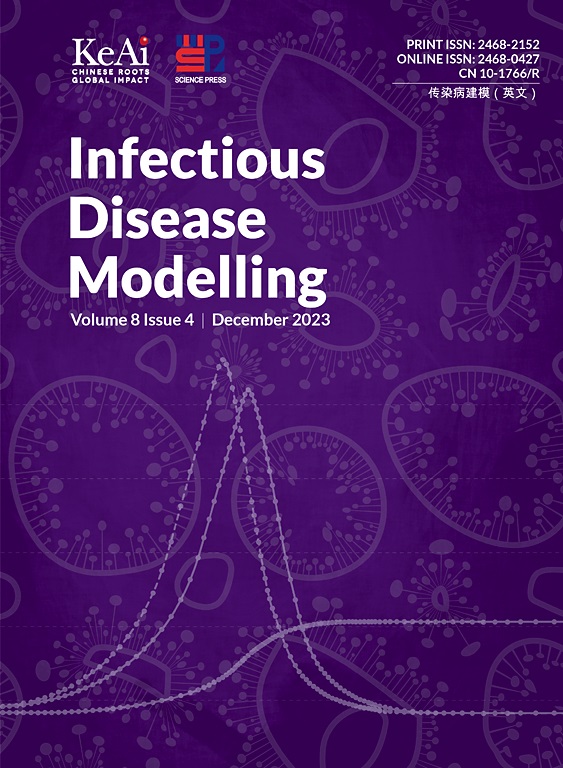Bayesian spatio-temporal modeling of severe acute respiratory syndrome in Brazil: A comparative analysis across pre-, during, and post-COVID-19 eras
IF 2.5
3区 医学
Q1 Medicine
引用次数: 0
Abstract
This paper presents an investigation into the spatio-temporal dynamics of Severe Acute Respiratory Syndrome (SARS) across the diverse health regions of Brazil from 2016 to 2024. Leveraging extensive datasets that include SARS cases, climate data, hospitalization records, and COVID-19 vaccination information, our study employs a Bayesian spatio-temporal generalized linear model to capture the intricate dependencies inherent in the dataset. The analysis reveals significant variations in the incidence of SARS cases over time, particularly during and between the distinct eras of pre-COVID-19, during, and post-COVID-19. Our modeling approach accommodates explanatory variables such as humidity, temperature, and COVID-19 vaccine doses, providing a comprehensive understanding of the factors influencing SARS dynamics. Our modeling revealed unique temporal trends in SARS cases for each region, resembling neighborhood patterns. Low temperature and high humidity were linked to decreased cases, while in the COVID-19 era, temperature and vaccination coverage played significant roles. The findings contribute valuable insights into the spatial and temporal patterns of SARS in Brazil, offering a foundation for targeted public health interventions and preparedness strategies.
巴西严重急性呼吸综合征的贝叶斯时空建模:covid -19之前、期间和之后的比较分析
本文对2016年至2024年巴西不同卫生区域的严重急性呼吸系统综合征(SARS)时空动态进行了调查。利用包括SARS病例、气候数据、住院记录和COVID-19疫苗接种信息在内的广泛数据集,我们的研究采用贝叶斯时空广义线性模型来捕获数据集中固有的复杂依赖关系。分析揭示了SARS病例发病率随时间的显著变化,特别是在covid -19前、期间和后三个不同时期之间。我们的建模方法考虑了湿度、温度和COVID-19疫苗剂量等解释变量,从而全面了解影响SARS动态的因素。我们的模型揭示了每个地区SARS病例的独特时间趋势,类似于邻里模式。低温和高湿与病例减少有关,而在COVID-19时代,温度和疫苗接种覆盖率发挥了重要作用。这些发现有助于深入了解巴西SARS的时空格局,为有针对性的公共卫生干预和防范战略奠定基础。
本文章由计算机程序翻译,如有差异,请以英文原文为准。
求助全文
约1分钟内获得全文
求助全文
来源期刊

Infectious Disease Modelling
Mathematics-Applied Mathematics
CiteScore
17.00
自引率
3.40%
发文量
73
审稿时长
17 weeks
期刊介绍:
Infectious Disease Modelling is an open access journal that undergoes peer-review. Its main objective is to facilitate research that combines mathematical modelling, retrieval and analysis of infection disease data, and public health decision support. The journal actively encourages original research that improves this interface, as well as review articles that highlight innovative methodologies relevant to data collection, informatics, and policy making in the field of public health.
 求助内容:
求助内容: 应助结果提醒方式:
应助结果提醒方式:


